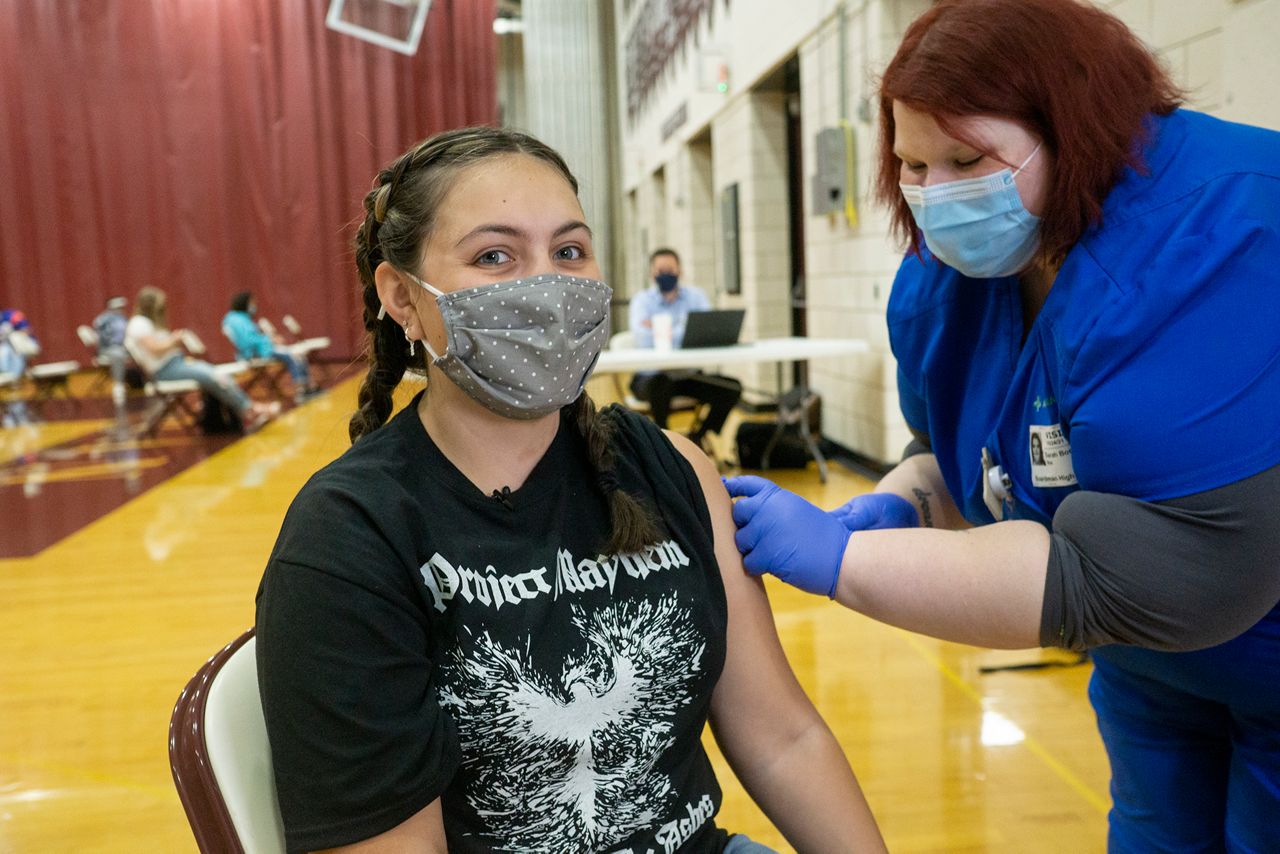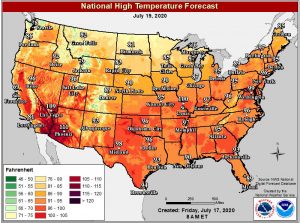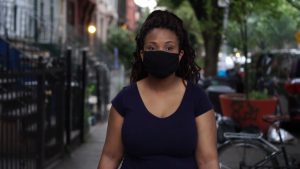MAHONING COUNTY, Ohio — Principal Cynthia Fernback’s file of quarantines has grown so large this school year that she says just thinking about it is a headache.
However, Fernback is hopeful vaccinations will help keep her stack smaller next year.
Boardman High School in northeast Ohio has about 1,300 students, 88 of whom received their second shot of the Pfizer COVID-19 vaccine during an at-school clinic last week. Fernback called them “trailblazers.”
Some students said they were getting the vaccine to help protect their community and to get back to a more normal life. For others, it was more personal.
Junior Karlynn Riccitelli said her dad was among the first in their county to become hospitalized with COVID-19 last March.
“Getting the vaccine today is really reassuring for me and my whole family that we won’t have to go through what my dad went through,” she said.
Vaccinating schools
Students said their school’s partnership with the county health department and Mercy Health made it easy to get the Pfizer shot without having to wait in a line or go to their doctor’s office.
They said they will have more freedom from their parents to be active and socialize this summer. Most of all, students were excited to be done worrying about quarantines, which some of the students endured multiple times this year.
“More often than not, when I was bringing a kid in to tell them that they were going to be quarantined, they would cry. They would literally cry. They did not want to be quarantined,” Fernback said. “Being here and being in person is very important to the kids.”
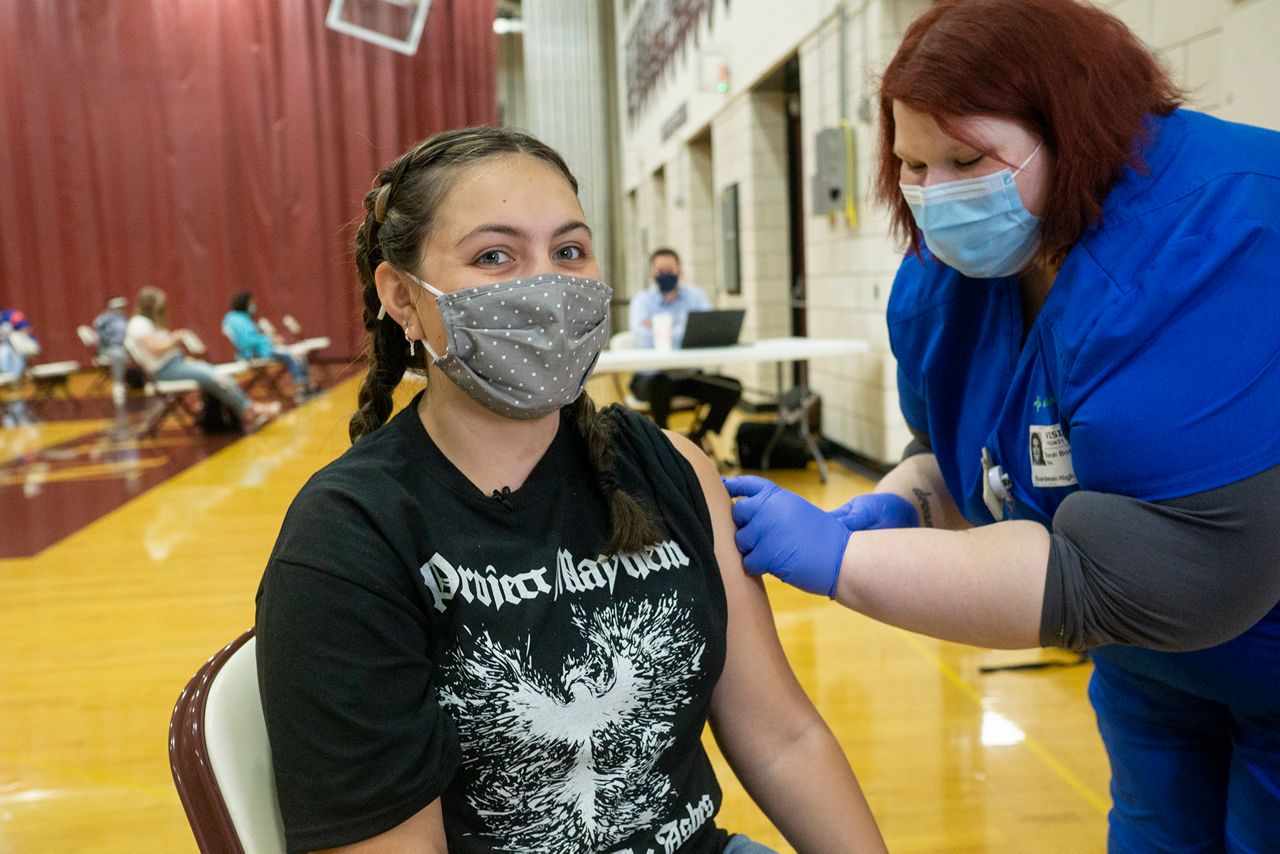
Student Karlynn Riccitelli. (Spectrum News / Pete Grieve)
In an unusual way, students’ reactions to being pulled out of school was a testament to the place that school holds in their social lives and in their mental health arena, Fernback said.
Health officials said getting back in session full time is critical to the wellbeing of children from social, health and education standpoints. They say getting out the vaccine to children will be key to doing that without masks.
Fernback said a relatively small number of families registered for vaccination. She said it’s a difficult decision for parents, but she expects the number to grow after they have some time to get comfortable with the safety of the vaccine.
Riccitelli said her friends are gradually becoming more interested in vaccination, and she’s noticed other students are being good about not judging others’ in regard to the vaccine, a lot more so than adults, she said.
“I’m just hoping that a lot more people will get vaccinated so we can go back to normal life,” she said.
Going first
Fernbeck said a lot of athletes and students who have high-risk family members were the most eager to get vaccinated.
The students getting vaccinated said they hope their classmates see their example and follow their lead so they can move past COVID-19.
The vaccine effort has already had an impact, allowing school events to occur this spring that at one point seemed improbable, including a senior prom, and giving a bit more freedom for students to socialize at lunch. Plexiglas and some distancing remains in place.
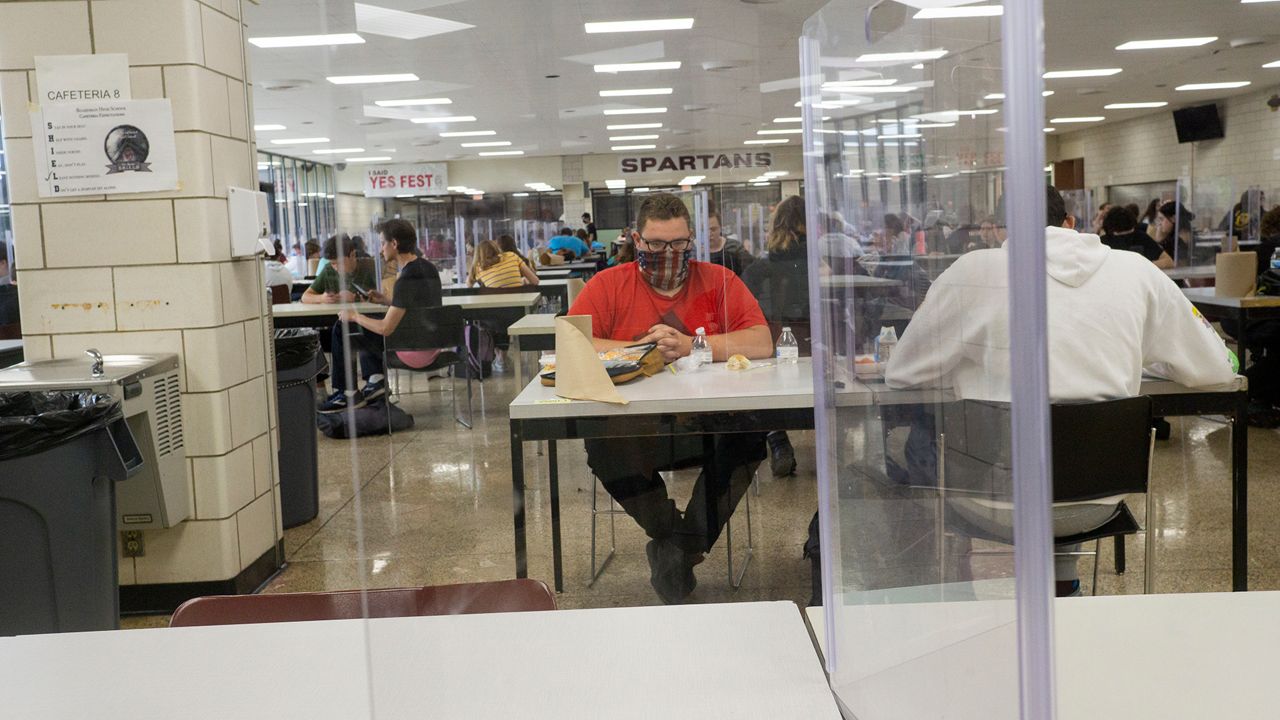
Riccitelli said this spring students have been able to have more fun as transmission rates in the county drop and more individuals in the school community gain immunity from the vaccine.
She plays electric violin for the school’s rock orchestra group, which puts on a big show every year called Project Mayhem with dancing and singing to modern and classic rock. The weekend before last, they were able to rock out at their first-ever outdoor concert, which would have been hard to imagine at the beginning of the school year, she said.
According to Riccitelli, when her dad got COVID-19 last year, he was reluctant to get a test at first. Her family became increasingly concerned as his sickness worsened — back when the country was shutting down and health systems were still figuring out what treatments COVID-19 patients needed.
“He was just doing so bad health-wise,” she said. “It was really scary for our family.”
They were overwhelmed and afraid, she said. Her mom would call the nurses’ desk three times a day for updates on his condition, which was not getting better. The doctors were thinking about putting him on a ventilator until he responded positively to a medicine.
“He was very close to being put on the ventilator,” she said. “It’s scary to think what would have happened if he did have to go on that ventilator.”
There’s no better feeling than knowing that she and her loved ones are now protected from the virus, she said, as she was observed for 15 minutes after getting the shot.
Making it easy
Mahoning County Health Commissioner Ryan Tekac said offering the vaccine to young residents in clinics at schools is a critical part of the county’s approach to immunization with demand among adults at a reduced level from previous months.
“We’re calling it the ‘grind it out’ game,” Tekac said. When interest in the vaccine was strongest, the county was vaccinating 1,500 people per day at large clinics.
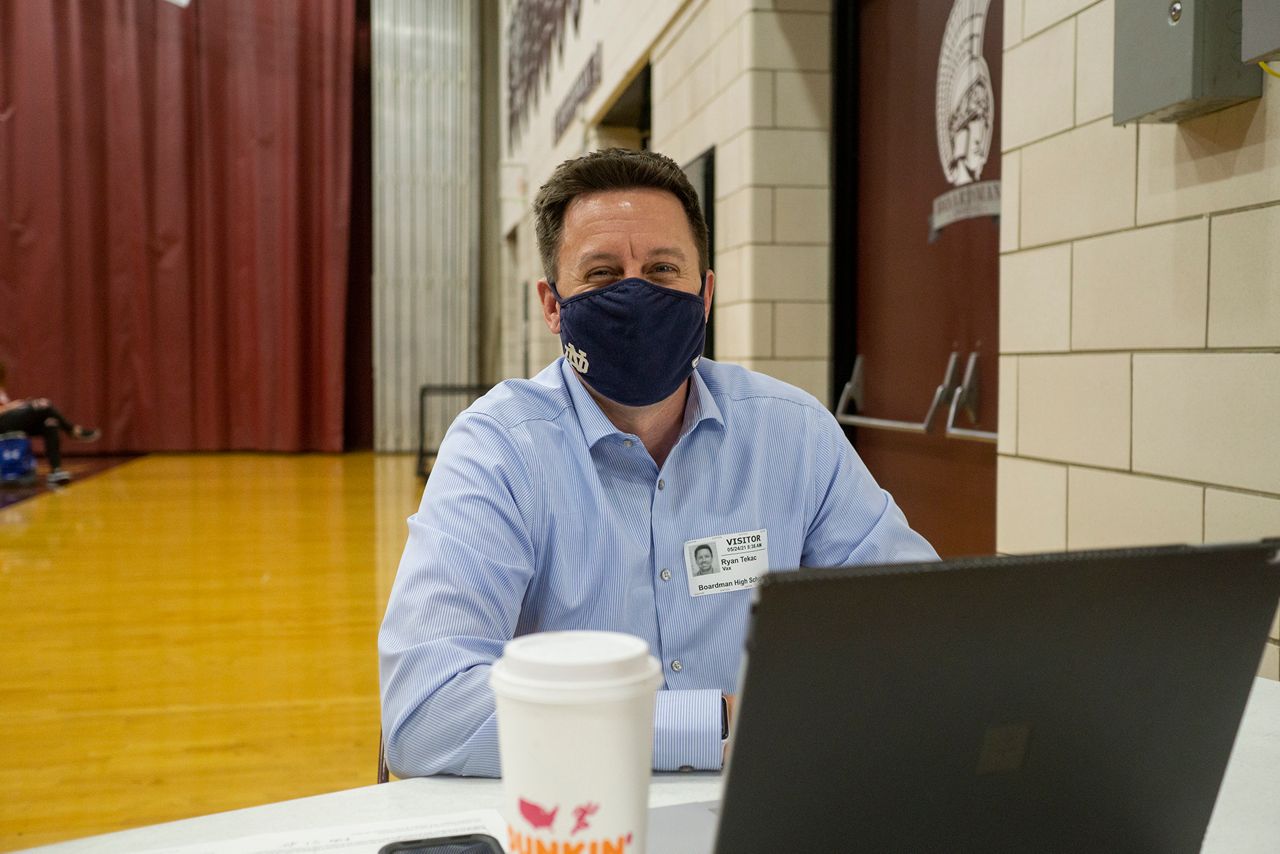
Mahoning County Health Commissioner Ryan Tekac. (Spectrum News / Pete Grieve)
The health department is now reaching about 40-50 people per day on average, and getting those numbers requires going out into communities to vaccinate.
Kids are at a lower risk of suffering severe illness from COVID-19, but it does happen.
In Ohio, dozens of children are becoming severely ill each week as COVID-19 hospitalizations have decreased by just 8.7% in the past two months, the smallest decline among all age groups.
According to the Centers for Disease Control and Prevention (CDC), 437 children aged 0-17 have died with COVID-19 and 3,304,065 children aged 0-17 have contracted COVID-19, leading to countless quarantines.
When the health department goes into schools, Tekac said they are getting students vaccinated who may otherwise not get the shot at this time.
“We had a great opportunity to come in here early on for them to receive their first dose and to complete it before school ends,” he said. “Bringing the vaccine to where the people are makes receiving the vaccination for these children a little bit easier.”
The Pfizer-BioNTech vaccine, which is now authorized for children 12 and older, can reduce spread among the age group, and health officials like Tekac are hopeful the vaccine campaign will let schools fill classrooms, gyms and performance spaces in the fall without so many restrictions.
“It gives them more of that freedom, knowing that they’re hopefully not going to contract COVID,” Tekac said. “If they do come across somebody that is positive, then we know that that student whether they play sports, or they want to go to an event, they don’t have to be quarantined, so it gives them a peace of mind going into the summer.”
Athletes see benefits
Jake Powell, a senior, said he got the vaccine to help stop the spread and save lives. Playing football in the fall for Youngstown State University, he said it also means getting to compete in full capacity stadiums.
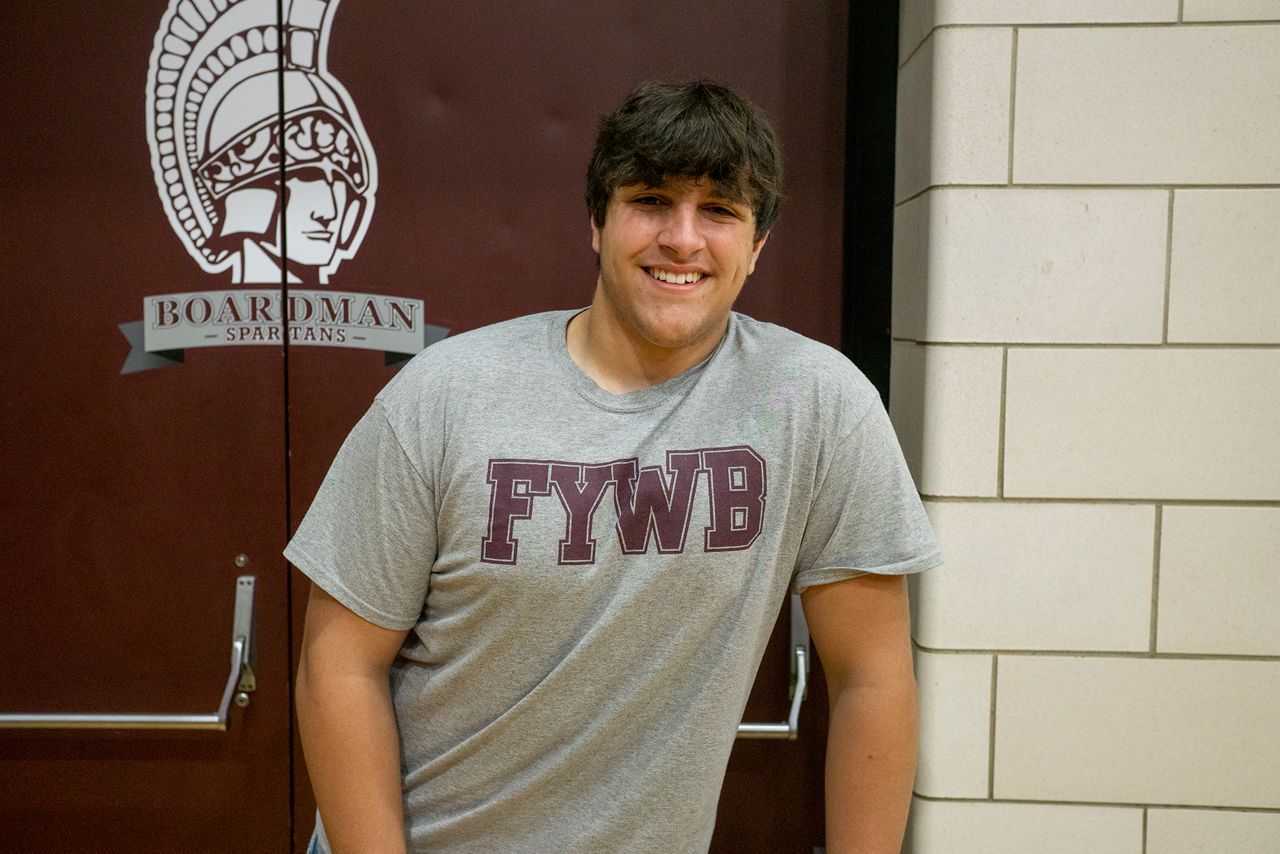
Student Jake Powell. (Spectrum News / Pete Grieve)
“It’s just different — not having a big crowd, not having all the support there, so I’m very excited for this upcoming season,” he said. “It will be a lot more fun and just more normal than this year for sure.”
He didn’t have any hesitation once the vaccine was offered at school.
“I kind of knew I was going to get it, so I just thought once the school offered it up, it was convenient. I wasn’t going to pass it up,” he said.
When he signed up, Powell didn’t know there’d be an added perk to taking the vaccine: Getting out of a big chunk of his morning classes on the day of the shot.
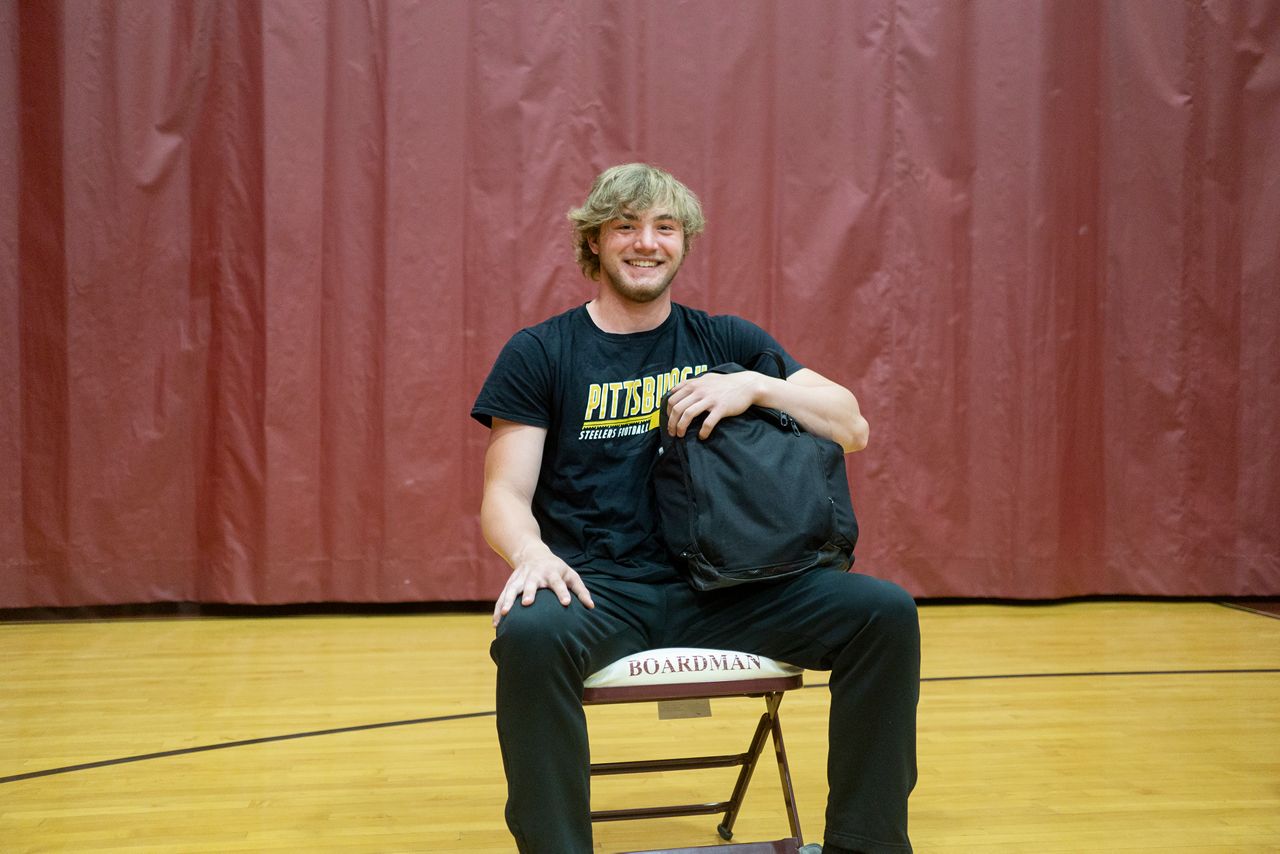
Junior Jason Triveri said the vaccine will allow him to play baseball without so much disruption. (Spectrum News / Pete Grieve)
A self-declared “school champ,” Powell said he played his cards well during the first-shot clinic, managing to hang around in the observation area for more than an hour before a school nurse realized he was milking the 15-minute waiting period.
For the second-dose clinic, he was even more prepared, he said, switching shirts about 15 minutes after getting the shot to throw off the staff conducting the clinic. Then he would make a strategic mask change and switch seats in the observation area.
“With everybody coming in and coming out, I can just hide in the crowd and blend in. I don’t come here to play, I’m here to break records,” he said. “My first mistake was I was up front last time during my historic run, but this time you know, I’m hidden in the back. Only thing is, I’m a big guy, so I’m easily visible.”
After all that the students have been through the past year, Fernback said she has more tolerance for such antics than ever before.
“I am encouraging shenanigans in a way that I’ve never encouraged this year only because it was such a slow start for them socially,” she said. “I’ve moved the line a little bit with tolerance of what I consider healthy shenanigans, especially for seniors.”
Powell said he was having fun that morning, but as for the vaccine, it’s serious business. While he felt lucky that he was back in-person for much of this school year, dipping in and out of virtual learning was not easy, even with teachers doing everything they could.
He also believes he contracted COVID and spread it to his family last year. The symptoms were miserable, and he felt bad for transmitting it.
Fernback said the school year has been unprecedented in every single way and a tremendous challenge, especially for public education.
“What I can say now sitting on this end of it is that public education has proved once again that you tell us what we need to do, and we’re going to get it done. And that’s what public education does in the state of Ohio,” she said.

